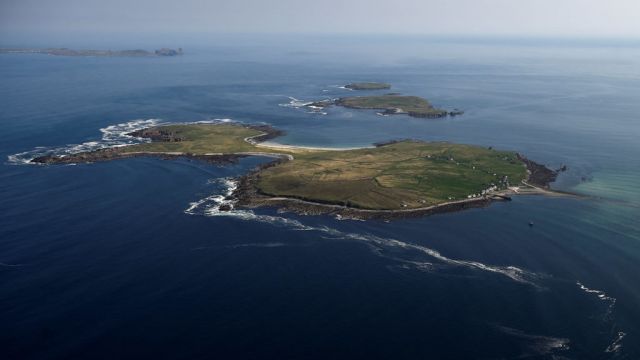A Dublin university has decided to return 400-year-old human skulls that were stolen from an island off the west coast of Ireland more than 100 years ago.
Thirteen skulls were taken from a monastery on the island of Inishbofin off the west coast of Ireland by two Trinity College-affiliated academics in 1890.
After sketching the skulls in the nook of St Colman’s monastery, considered sacred by the islanders, Alfred C Haddon and Andrew F Dixon took the skulls in the middle of the night.
Hadden’s diary entry stated that when asked by sailors to hand over the satchel, “Dixon would not give it up” and told the men it contained “poitin” – a distilled Irish alcohol.
Trinity College is formally reviewing legacy issues since its foundation in 1592, which included the request to return the skulls and whether its Berkeley Library should be renamed.
Trinity’s main library was named in 1978 after the renowned philosopher George Berkeley, who was a slave-owner.
The Trinity Legacies Review Working Group carried out research and analysis of the stolen skulls, and then offered a number of options to the board of Trinity University on what action it could take.
On Wednesday, the university’s board agreed to return the skulls.
Senior Dean at Trinity Eoin O’Sullivan, head of the working group, told PA previously this was chosen as the first case for the legacy group to examine because it was clear what had happened.
“The provenance is very clear: we have his diary, we know he took those skulls without the consent of the islanders and bundled them into a satchel, and put them on the boat and back to Trinity with them,” he said.
Following the decision to return the skulls, Mr O’Sullivan said the approach Trinity has taken “proved its worth”.
Further engagement will now take place with the Inishbofin community to find an appropriate way of returning the remains.
Trinity Provost Dr Linda Doyle apologised to the islanders and said the university would work with the community to ensure the remains are returned in an appropriate way.
“I am sorry for the upset that was caused by our retaining of these remains and I thank the Inishbofin community for their advocacy and engagement with us on this issue,” she said.
“We will now work with the community to ensure that the remains are returned in a respectful manner and in accordance with the community’s wishes.
“I want to thank everyone who engaged with the process that we have put in place to address issues of this nature. I am glad that we have made an evidence-based decision and that our process allowed all points of view to be heard.”







